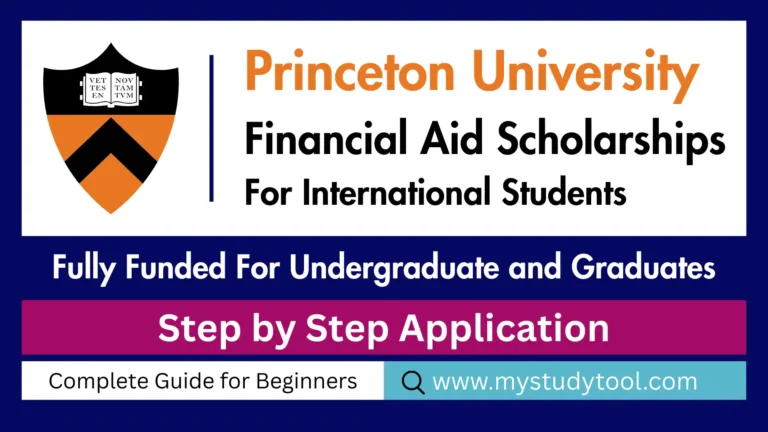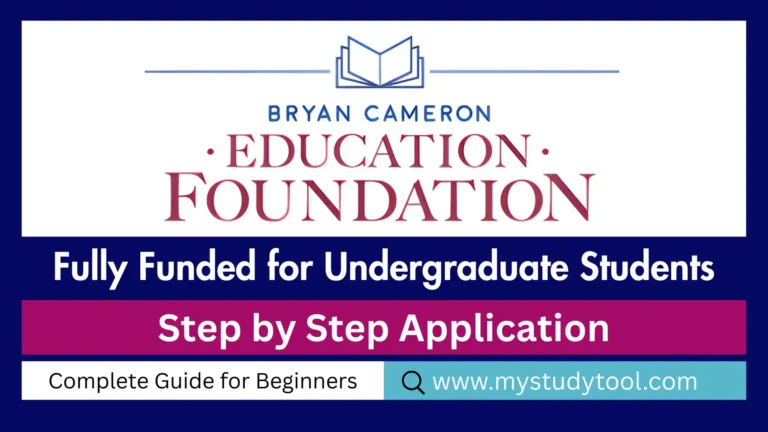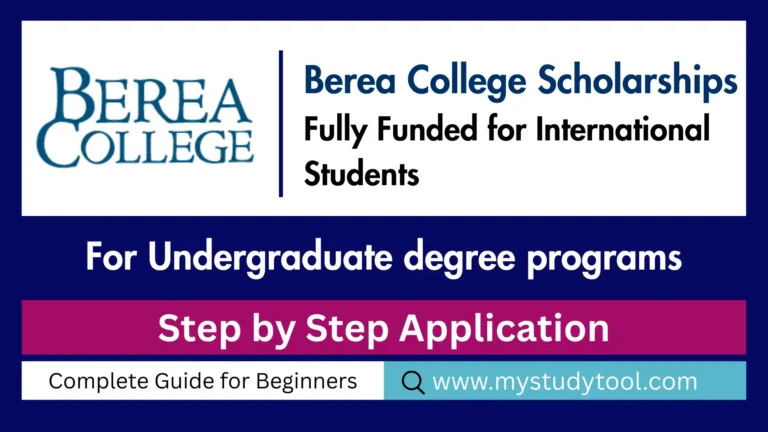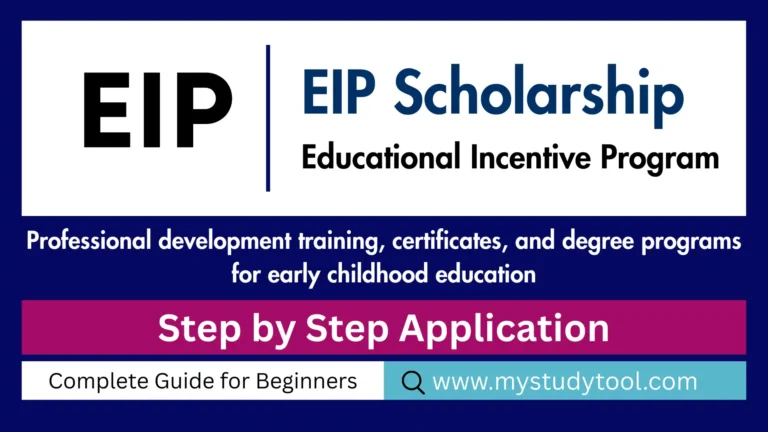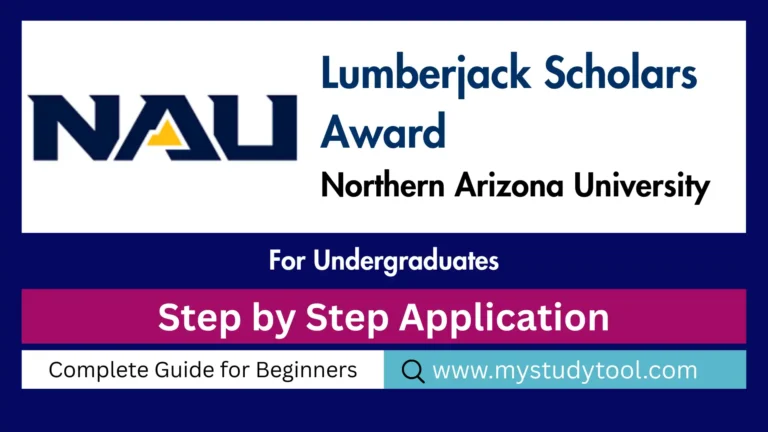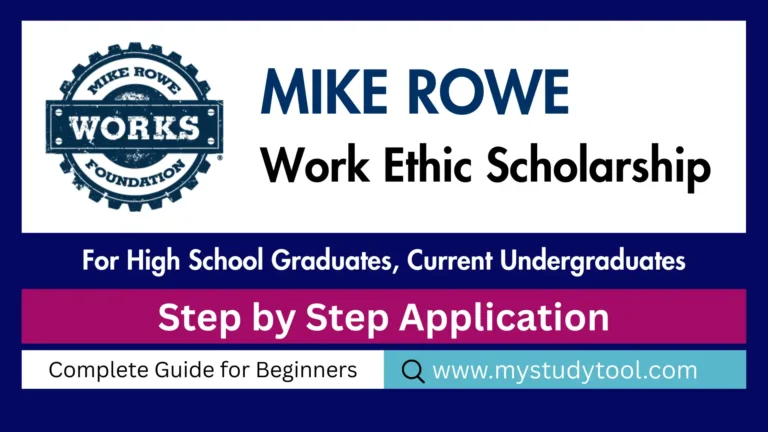Start your academic journey at one of America’s most prestigious universities. Yale University Scholarships 2025-2026 are currently open for international and domestic students. This fully funded scholarship program covers undergraduate, master’s, and PhD studies with awards based entirely on demonstrated financial need.
Here’s what most people don’t realize – Yale is the third-oldest university in the United States, founded in 1701 in New Haven, Connecticut. Originally established to educate clergy, it’s now home to Nobel Laureates, Supreme Court Justices, US Presidents, and Rhodes Scholars. The university ranks among the top institutions globally, making it one of the most sought-after Ivy League schools.
More than 50% of Yale students receive financial aid, with Yale meeting the full demonstrated financial need of all students regardless of citizenship or immigration status. This includes undocumented students living in the US, with or without DACA status. Yale operates under a need-blind admissions policy, meaning they decide whether to admit you first, then figure out how to make it affordable afterward.
Scholarship Overview
- Study Levels: Undergraduate, Master’s, PhD Programs
- Institution: Yale University (Ivy League)
- Study Location: USA
- Program Duration: 2-5 academic years, depending on the chosen program
- Coverage: Full demonstrated financial need met (no set maximum)
- Eligibility: All countries worldwide, including undocumented students
- Application: Through the admissions process
- Need-Based Awards: All undergraduate aid is based on a financial need assessment – no merit scholarships
- Full Need Met: Yale meets 100% of demonstrated financial need for all admitted students
- Graduate Funding: Department-specific policies and full PhD funding available
- International Welcome: Same aid eligibility for international students and undocumented students
- No Loans Required: Financial aid comes as grants, not loans that need repayment
- Coverage Rate: More than 50% of Yale students receive financial aid
- Need-Blind Admissions: Admission decisions made without considering ability to pay
Also read: DAAD Scholarships 2026 (Fully Funded) | Application Process
Yale University Scholarships Coverage
Yale’s approach is honestly refreshing compared to other universities. They don’t make you jump through different scholarship hoops – it’s one comprehensive financial aid system that adapts to your needs. Here’s what gets covered under their fully funded program:
- Complete Tuition Coverage: Full academic fees for qualifying families under income thresholds
- Room and Board: Dormitory housing, meal plans, and residential college fees included
- Books and Academic Supplies: Textbooks, lab materials, course-specific equipment, and software
- Personal Living Expenses: Daily necessities, clothing, transportation, and miscellaneous costs
- Technology Requirements: Laptop, software licenses, and digital learning tools
- Health Insurance: Comprehensive medical coverage and campus health services
- Study Abroad Programs: International exchange opportunities and travel costs
- Research Project Funding: Undergraduate research stipends and conference presentations
- Summer Academic Programs: Funding for summer courses, internships, and academic opportunities
- Graduate Stipends: PhD students receive annual stipends plus full tuition coverage
- Emergency Financial Support: Unexpected expenses and crisis assistance available
Also read: Japanese Government (MEXT) Scholarship for International Students
Eligibility Criteria for Yale University Scholarships 2026
Getting Yale funding isn’t about perfect grades or impressive extracurriculars – it’s about demonstrating genuine financial need and meeting admission requirements. Yale operates a need-blind admissions policy, meaning they admits students without regard to their ability to pay and then provides aid based on individual needs assessments.
General Eligibility Requirements:
- Admission Requirement: Must be admitted to Yale University first
- Financial Need: Demonstrated through FAFSA and CSS Profile assessment
- Academic Standing: Maintain satisfactory academic progress throughout enrollment
- Enrollment Status: Full-time undergraduate or graduate student status required
- Citizenship: Open to all nationalities – international students and undocumented students are equally eligible
Low-Income Specific Qualifications:
- Federal Lunch Program: Enrolled in or eligible for Free or Reduced Price Lunch program
- Testing Fee Waivers: Received ACT or SAT fee waivers due to financial circumstances
- Support Programs: Participation in TRIO programs like Upward Bound or similar initiatives
- Ward Status: Ward of the state or orphan status qualifies for additional consideration
- USDA Guidelines: Annual family income within USDA Food and Nutrition Service guidelines
- Housing Assistance: Living in federally subsidized housing, foster care, or experiencing homelessness
- Public Assistance: Family receiving government assistance programs
- Supporting Documentation: Statement from school official, counselor, or community leader
Language Requirements for International Students:
- English Proficiency: Required for all non-native English speakers
- TOEFL Scores: Minimum 100 internet-based, 600 paper-based, or 250 computer-based
- IELTS Requirement: Score of 7 or higher accepted
- Pearson Test: Minimum score of 70 or higher
- Alternative Tests: Other standardized English proficiency exams are considered case-by-case
Required Documents
The paperwork might look intimidating, but Yale’s financial aid team walks you through everything. They want you to succeed – remember, they’ve already decided they want you at their university.
Financial Documentation:
- FAFSA Completion: Free Application for Federal Student Aid by February 1st deadline
- CSS Profile: College Scholarship Service Profile through College Board
- Tax Returns: Student and parent federal tax returns for the previous year
- W-2 Forms: All employment wage statements and salary documentation
- Bank Statements: Recent statements for checking, savings, and investment accounts
- Asset Documentation: Investment portfolios, real estate holdings, business ownership records
- Untaxed Income: Social Security benefits, child support, welfare, veteran benefits
Academic and Personal Records:
- Transcripts: Official high school or previous college academic records
- Test Scores: SAT, ACT, or standardized test results
- Letters of Recommendation: Academic and personal character references
- Personal Statement: Essays explaining background, goals, and financial circumstances
- Medical Documentation: Unusual medical expenses affecting family finances
Also read: Required Scholarship Documents: 47 Must-Have Documents
How to Apply for Yale University Scholarships 2026
Here’s the thing about Yale scholarships – you don’t apply separately. Financial aid is automatically considered for all admitted students through the admissions process, which simplifies everything once you understand the system.
For Undergraduate Programs:
- Submit Yale Application: Complete Common Application or Coalition Application with Yale-specific supplements
- Meet Application Deadlines: Single-Choice Early Action (November 1st) or Regular Decision (January 2nd)
- File Financial Aid Forms: Complete FAFSA using Yale’s school code 001426 – recommended by November 1st (Early Action) or February 15th (Regular Decision)
- Submit CSS Profile: File through College Board – recommended by November 1st (Early Action) or February 15th (Regular Decision)
- Upload Supporting Documents: Provide tax returns, bank statements, and verification materials through the student portal
- Respond to Requests: The Financial Aid Office may request additional documentation or clarification
- Review Award Package: Receive financial aid determination with admission decision
For Graduate and PhD Programs:
- Choose Your Department: Apply directly to specific graduate departments, as funding policies vary
- Department Application: Each graduate school has unique requirements and deadlines
- PhD Funding: Doctoral students typically receive fully funded packages including tuition, stipend, and health insurance
- Master’s Programs: Funding availability varies significantly by department and program
Also read: Gates Cambridge Scholarship 2026 | How to Apply
Application Deadlines:
Undergraduate Programs:
- Single-Choice Early Action: November 1st
- Regular Decision: January 2nd
- Financial Aid Recommended Dates: November 1st (Early Action) or February 15th (Regular Decision)
- Note: No strict financial aid deadline, but early submission ensures an aid letter with the admission decision
Graduate Programs:
- Varies by Department: Check individual graduate school websites
- PhD Applications: Typically December 1st – January 15th
- Master’s Programs: February 1st – April 1st (department dependent)
Note: While admission deadlines are firm, there is no strict deadline for financial aid applications. However, submitting by the recommended dates ensures you receive your financial aid award letter with your admission decision.
Special Programs and Opportunities
Yale offers several additional funding opportunities that most students don’t know about. These can make a huge difference in your overall experience:
Undergraduate Research Funding:
- Summer Research Stipends: $4,000-$6,000 for independent research projects
- Conference Presentation Support: Travel and accommodation funding for academic conferences
- International Research Grants: Funding for research projects abroad
Work-Study Programs:
- Campus Employment: Part-time jobs integrated into financial aid packages
- Community Service: Federal work-study positions in local nonprofit organizations
- Academic Departments: Research assistant and teaching assistant opportunities
Graduate Student Support:
- PhD Fellowships: Five-year funding packages covering tuition plus $40,000+ annual stipends
- Health Insurance: Comprehensive medical coverage is included in PhD packages
- Professional Development: Conference travel, research materials, and academic networking support
Income-Based Aid Structure
Yale’s need-based aid system is designed to make education affordable for families at all income levels. The university uses a comprehensive assessment of family finances to determine aid eligibility, considering both income and assets.
Need-Based Assessment Process:
- Full Need Met: Yale meets 100% of demonstrated financial need for all admitted students
- Individual Evaluation: Each family’s financial situation is assessed individually using federal methodology
- No Standard Thresholds: Aid amounts determined by specific family circumstances rather than fixed income cutoffs
- Asset Consideration: Both income and assets are factored into financial aid calculations
- Special Circumstances: Unusual expenses, job loss, medical costs, and family changes are considered
Aid Package Components:
Tips for Maximizing Your Aid Package
Here are some insider strategies that work (I’ve seen families save thousands with these approaches):
Application Strategy:
- Early Submission: Submit all forms well before deadlines to avoid processing delays
- Accurate Information: Double-check all financial information – mistakes delay processing
- Communication: Contact the financial aid office if family circumstances change
- Professional Review: Have a tax professional review forms for accuracy
Documentation Best Practices:
- Organize Early: Gather all required documents before starting applications
- Digital Copies: Maintain electronic copies of all submitted materials
- Follow Up: Confirm receipt of all documents through student portals
- Additional Context: Provide explanatory letters for unusual financial circumstances
Special Circumstances Appeals:
- Job Loss: Recent unemployment significantly impacts aid calculations
- Medical Expenses: High medical costs can increase aid eligibility
- Business Losses: Economic downturns affecting family businesses
- Divorce or Separation: Family structure changes impact aid assessments
Also, check other scholarships in the USA: Scholarships in the USA
Official Website and Applications
For current information and application access, visit these official Yale resources:
Undergraduate Information: Yale College Admissions – Complete application requirements, deadlines, and admissions guidance
Financial Aid Resources: Yale Financial Aid Office – Aid calculators, forms, deadlines, and support information
Graduate Programs: Yale Graduate School – Department-specific applications and funding information
International Students: Yale World Fellows – Specific guidance for international applicants
Frequently Asked Questions About Yale University Scholarships
Does Yale University give full scholarships?
Yes, Yale gives full scholarships to students who demonstrate high financial need. Yale meets 100% of demonstrated financial need for all admitted students. This means if your family cannot afford to pay for college, Yale will cover the full cost, including tuition, room, board, and other expenses. The aid comes as grants, not loans, so you never have to pay it back.
How hard is it to get a scholarship to Yale University?
Getting a Yale scholarship is tied to getting admitted to Yale, which is very competitive. Yale accepts only about 5% of applicants. However, once you’re admitted, getting financial aid is much easier. More than 50% of Yale students receive financial aid. The hardest part is getting accepted to Yale itself, not qualifying for financial aid afterward.
What GPA do you need for a Yale scholarship?
Yale scholarships are need-based, not merit-based. This means your GPA doesn’t determine if you get a scholarship. Yale doesn’t offer academic merit scholarships at all. Your financial aid depends only on your family’s income and assets, not your grades. However, you still need excellent grades to get admitted to Yale in the first place.
Can international students get Yale scholarships?
Yes, international students can get the same need-based financial aid as US students. Yale has a need-blind admissions policy for international students from many countries. This means Yale decides whether to admit you first, then figures out how to make it affordable. International students receive the same grants and financial support as American students.
How much money can you get from Yale scholarships?
Yale scholarship amounts vary based on your family’s financial situation. Some students receive a few hundred dollars, while others get full coverage worth over $70,000 per year. Yale meets 100% of your demonstrated financial need, so the amount depends on what your family can afford to pay. The average Yale scholarship is over $50,000 annually.
Do you have to pay back Yale scholarships?
No, you never have to pay back Yale scholarships. Yale financial aid comes as grants, not loans. This means the money is free and doesn’t need to be repaid after graduation. Yale doesn’t offer loans as part of their financial aid packages. All aid is given as scholarships and grants that are yours to keep.
When should I apply for Yale financial aid?
You should apply for Yale financial aid at the same time you apply for admission. The recommended deadlines are November 1st for Early Action applicants and February 15th for Regular Decision applicants. There’s no strict financial aid deadline, but applying early ensures you get your aid letter with your admission decision.
What documents do I need for Yale financial aid?
You need to complete the FAFSA and CSS Profile forms. You also need your family’s tax returns, bank statements, and W-2 forms. If your parents own a business or have investments, you’ll need those documents too. International students may need additional forms. Yale’s financial aid office will tell you exactly which documents you need.
Does Yale offer merit-based scholarships?
No, Yale does not offer merit-based scholarships for undergraduate students. All Yale scholarships are based only on financial need. This means your test scores, grades, or achievements don’t determine your scholarship amount. Yale believes this system is fairer because it helps students who need financial support the most, regardless of their academic performance.
Can middle-class families get Yale financial aid?
Yes, middle-class families often receive significant financial aid from Yale. Yale considers many factors beyond just income, including family size, assets, and special circumstances. Many families earning $100,000-$200,000 per year still qualify for substantial aid. Yale uses a detailed assessment to determine what each family can realistically afford to pay.


